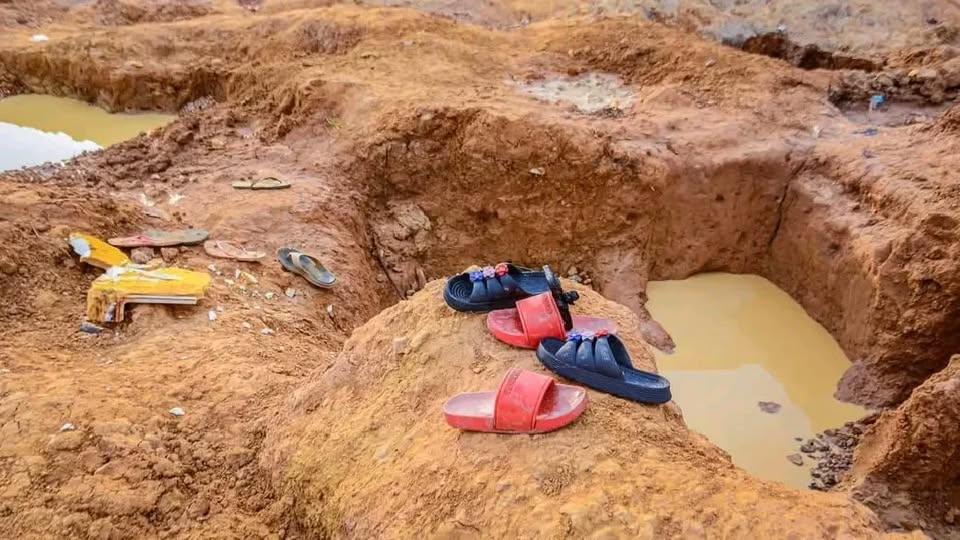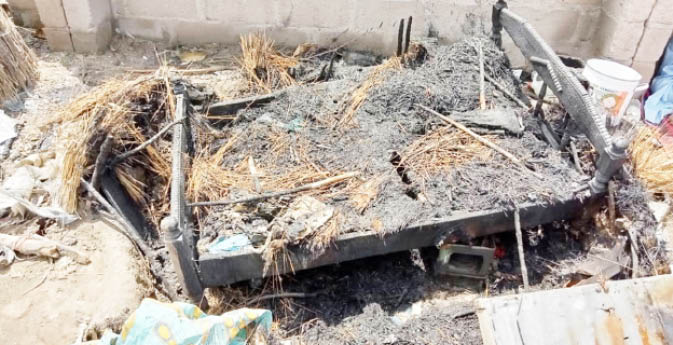Kaduna Sand Pit Tragedy Claims 11 Young Lives, Urges Safety Reforms
Devastating Collapse Shocks Yardoka Community

A heartbreaking tragedy unfolded in Yardoka village, Kaduna State, Nigeria, on June 2, 2025. A sand pit collapsed, killing 11 children aged four to nine. These young students, part of an informal Islamic school, were digging sand for their teacher’s housing project. The pit caved in around 1:45 p.m., burying them under heavy debris. Local residents and volunteers rushed to save them but failed to rescue the victims. Seven other children survived with injuries and now receive treatment at Yardoka’s Primary Healthcare Centre. This incident has devastated the community and sparked urgent calls for better safety measures.
The victims—Muntari Abdulkadir, Aliyu Abba, Ali Umar, Mubarak Haruna, Usain Isa, Yusuf Shafiu, Mujitafa Jibril, Yusha’u Saidu, Aliyu Abdu, Hamisu Mohammed, and Ali Abdulmomini—lived in Yardoka and nearby villages in Kubau Local Government Area. Eyewitnesses reported the children worked deep in the pit when its walls collapsed. Villagers frantically dug through the rubble, but the sand proved too heavy. The survivors, including Umar Dini and Jibir Surajo, reached the health facility for care. Their recovery offers a glimmer of hope amid the grief.
Police Investigate Child Labor Concerns

DSP Mansir Hassan, Kaduna State Police spokesperson, confirmed the tragedy to the News Agency of Nigeria on June 4, 2025. He noted that Alhaji Lawal Damau, the village head, reported the collapse. Police and volunteers worked tirelessly to recover the victims. Now, authorities probe whether the children faced exploitation, as their task may violate Nigeria’s child labor laws. The victims, almajirai students, often perform menial jobs to support their Islamic education. This practice, common in northern Nigeria, raises ethical questions about child welfare.
The children dug sand to help their teacher build a home, a task that exposed them to danger. The police investigation focuses on whether anyone coerced the children into this hazardous work. Nigeria’s laws prohibit child labor, especially in unsafe conditions. The tragedy highlights the risks of unregulated work sites, where loose soil or rain can destabilize sand pits. Investigators aim to determine the collapse’s cause, but the incident already underscores the need for stricter safety rules.
Broader Implications for Almajiri System
The almajiri system, prevalent in northern Nigeria, educates millions of children in Islamic studies. Yet, it often leaves students vulnerable to exploitation. Many almajirai, from poor families, work or beg to survive. This tragedy has reignited debates about reforming the system. Critics argue it exposes children to dangerous conditions, while supporters see it as a cultural cornerstone. Franklin Ebuka, a public affairs analyst, spoke on Power FM, calling the incident a “wake-up call.” He urged authorities to protect children from hazardous labor.
Similar tragedies echo globally. In 2000, a New Zealand boy died in a sand dune collapse. In 2008, a California child perished in a sand cave accident. These cases highlight the universal danger of unstable sand structures. In Nigeria, informal construction sites often lack oversight, amplifying risks. Experts suggest mandatory inspections and training could prevent future deaths. For now, Yardoka mourns its loss, as families grieve children who were simply helping their teacher.
Community Mourns, Calls for Change

The Kaduna State Police expressed condolences to the affected families. Community leaders rally to support grieving parents, many of whom lost their only children. One mother, sobbing, said, “They were just helping their teacher. How could this happen?” The pain runs deep in Yardoka, a tight-knit village now scarred by loss. Authorities promise updates on their investigation, hoping to uncover why the pit collapsed and how to prevent future tragedies.
This incident demands action. Safety guidelines for informal work sites could save lives. Addressing poverty and improving access to formal education might reduce reliance on child labor. The survivors’ recovery offers some solace, but the loss of 11 young lives leaves a void. As Yardoka heals, the tragedy serves as a stark reminder of the need to protect Nigeria’s children. The nation watches, hoping this loss sparks meaningful change to ensure no child faces such risks again.

